by admin | Nov 16, 2015 | Uncategorized

When you become a parent something inside shifts. It happens slowly over time but it undoubtedly happens. People without children are free to act as they wish. They don’t have to pretend for the sake of the kids. For example, when I was a single person and I would stub my toe I could run around the room screaming and cursing until the pain had subsided. But now I have to hop around moaning quietly so as not to scare the children. Cursing is out of the question. I used to be able to sit on the couch and eat a box of Cap’n Crunch for dinner while watching an afternoon of The Real World reruns. Now I have to pretend like TV is the enemy and keep it off most of the time. I feel like I have to maintain order and act like an adult.
While these changes are subtle they undoubtedly exist. I feel more like a mother now than I did when the kids were young. I used to feel like I was pretending to be the responsible mother. Now I actually feel like the mother. For better or worse, a piece of me–who I was uncensored–is gone.
But every now and then a little tiny nugget of the real me is forced out. One time I let out a cursing rant when I accidentally backed the car into a pole. Another time I lost my composure when I was treated badly in a doctor’s office. Both times I forgot my mom self and acted like my real human self. I lost my composure, and I showed the kids a side I wasn’t proud of.
In the past I only let my guard down inadvertently. It would just happen by accident when I was pushed to my limit. I would never choose to act that way. Or would I?
This weekend I had an opportunity to go zip lining with my daughter. I am extremely afraid of heights and falling. I can get vertigo in a roller rink. I tend to play it pretty safe. So the idea of climbing up a tall rope wall to sit on the edge of a tiny wooden platform, then hurl myself down a giant cord over a ravine sounded torturous. And yet, I found myself following my daughter up the hill to participate with her. She could have done it herself, so why did I feel the need to push my limits? If I were alone I would never have given the zip line another thought.
But as we rounded the hill to the launch site I realized exactly what I was doing. I was being vulnerable. I was going to be afraid, and I was going to do it in front of my daughter. I would let down that wall and show her that I, too, get anxious. And instead of cowering on the ground watching her, I wanted to do what scared me for her sake.
I push my daughter to face her fears constantly. I don’t want her to feel she can’t do something. She shouldn’t let anxiety hold her back. We have learned that the best way to conquer fear is with positive self-talk. Tell yourself you can do this. Ask yourself what is the worst that could happen? And envision yourself doing it and being successful. It is so easy to tell my daughter what to do when I am not the one who is scared.
So we got outfitted with the harness, helmet and ropes. We did a practice run, and I felt confident–maybe even a little excited. But as I climbed that rope wall, higher and higher, my fears escalated. I wanted to back out. My daughter was climbing below me and quickly gaining ground. This was so easy for her. I was simultaneously panicked and proud that she could conquer this without fear. My resolve was wavering, but I hadn’t backed down.
We both reached the tiny platform at the top of the zip line around the same time. At this point I was no longer a mom. I could not take care of my daughter because I was a petrified woman with tunnel vision. I was shaking with fear of death. Before I could zip anywhere workers hooked me up to the line. My feet were dangling and all I could see was the long rope and the cavernous drop. I didn’t want to do it. I wanted to back out. But there was my daughter. And she said, “Mom, you can do it!”
And then I heard “One … Two …” I told myself, “You can do this. Do it for your daughter so you can look her in the eye and honestly ask her to face her fears too.” And with the three! I launched myself off the tiny platform. Euphoria immediately set in. I was zipping through the air looking at my daughter zipping next to me. It was a moment I will be unable to forget, and I hope she doesn’t either.
For once I let my daughter behind the curtain. I wasn’t supermom. I had flaws and fears and insecurities. I didn’t hide them from her. And when she saw these traits in me, she wasn’t unnerved. She supported me like I supported her.
That day I really enjoyed my time with my daughter in a way that parents of tweens often don’t. I know it was because for once I came undone. We were in it together and we are both better off for it.
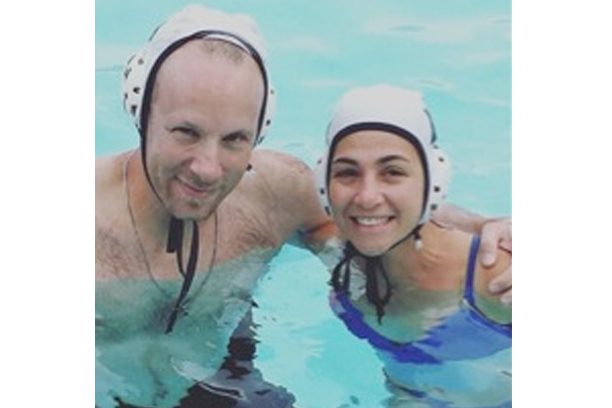
by admin | Oct 19, 2015 | Blog, Catherine's Picks

Today’s parents are not just parents. They are coaches and referees and umpires. I don’t mean the kindhearted people who volunteer their time. I’m talking about the parents on the sidelines. As parents, we don’t just watch our children play sports any more. We are in the game.
Lately I have been focusing on how parents behave at my kids’ games. I have seen some ugly behavior. So many moms and dads have no qualms about yelling at umpires who are only behind the plate because no one else volunteered. I recently saw a parent scream at his kid, “Come on! You can do better!” The child was 8.
I never viewed myself as that kind of mother. For the first few years of parenting my husband and I avoided organized sports. Our kids weren’t competitive killers chomping at the bit to play on a team, and we were plenty psyched to keep our weekends together as a family.
Inevitably, though, our kids decided they wanted to get in the game. My son played baseball and basketball. My daughter, who never cared much for sports, was strongly encouraged (by us) to find a healthy physical activity. She chose water polo–a game we knew nothing about.
Three times a week I watch my daughter in the pool and twice per week my son is on the field. After seeing the craziness many parents bring to youth sports, I was determined not to join the insanity. I wasn’t going to yell or advise. I wasn’t going to praise every minute play or action. My plan was to simply enjoy watching them enjoy themselves.
Only I couldn’t. As much as I tried, I still found myself shouting. I wanted my daughter to swim more aggressively. I wanted my son to put his hand behind his back while catching. He should swing through the ball more. She should call for the ball more. Blah blah blah. I became so disgusted with myself that I became determined to sit at a game and say not utter word of advice. But, well, I couldn’t do it. I failed. Repeatedly.
And then, in eight minutes, I was cured.
My daughter’s water polo team had a family polo game, kids against parents, yesterday morning. My husband and I suited up, put on the ridiculous headgear and eagerly jumped in. The old folks warmed up for a minute and tried to stay afloat. Everyone was laughing, giggling, having a fun ol’ time. Then, one second after the initial whistle from the coach, it became clear this was no laughing matter. We had to swim back and forth and back and forth. I could barely keep my head above water while trying to throw the ball. Another player nearly drowned me, appropriately, trying to get the ball (She’s 9). After three minutes I was tempted to tap out.
I didn’t, and wound up playing a whole eight minutes. I didn’t do the team’s requisite 20 laps as a warm up, and I didn’t practice for another hour after that. Eight minutes total. As I clumsily slogged out of the pool, deprived of breath and barely able to pull my own body weight, I realized I had no business telling my daughter what to do in the water (and there is no added benefit to nitpicking my son’s game, either).
My kids are not playing sports for the scholarship potential. There is absolutely no justified reason I need to coach them from the sidelines. The only outcome I can see is that they get so sick of hearing my commentary that they stop playing. I read in a recent survey that 70 percent of kids stop playing sports by 13. I can see why. There is so much pressure even without comments from the bystanders. From now on I am a spectator. I am not there to help my kids get better or stronger or more adept at the game. I am not there to teach the coach or the umpire how to do their jobs. I am simply going to enjoy the game, keep my big mouth shut …

by admin | Oct 15, 2015 | Uncategorized

Last week the students at Aliso Niguel High School in Aliso Viejo, Cal. were rightly euphoric.
They learned that their school won the Chegg + Macklemore & Ryan Lewis voting contest on Chegg.com. The hip-hop superstars–whose song “Downtown” is the duo’s fifth Top 20 hit on the Billboard Hot 100 List–would come to Aliso Niguel High to lecture on the entertainment and music industry. And that wasn’t all. Along with the celebrity appearances, the school’s meager music budget would receive a needed boost with a $10,000 David B. Goldberg Music Grant. Chegg.com is an educational website whose mission is to ensure that all student have access to higher education and low-cost tutoring and books. The music grant was named for the beloved late CEO of Survey Monkey, who passed away earlier this year.
If you’re Aliso Niguel High, this sounds great, right?
Well, you would think. The student body excitement came to an abrupt halt when the principal, Deni Christensen, cancelled the event and declined the donation after several parents complained that Macklemore and Lewis promote “alcohol and drug use and misogyny in their music.”
While the duo does, indeed, have songs that aren’t exactly clean, they’re best known for the powerful song “Same Love” about marriage equality.
The students and community rallied on Instagram, Twitter (#bringmackback), and created a Change.org petition to put pressure on the administration. In less than 24 hours, 8,713 people signed petition. After careful consideration of the various points of view, Christensen–to her credit–reversed her decision and will accept the donation and hold the lecture (permission slips from parents will be required).
Problem solved, case closed. Right?
Um, no.
There’s a problem here. A big one. And it’s not specific to Aliso Niguel High, or Seattle-based hip-hop artists. In the culture of Tiger moms and helicopter parenting, mothers and fathers and even educators have taken the concept of protecting children to a whole new level by trying to shield kids from any perceived inappropriateness. The problem is that censoring doesn’t protect children. It often has the opposite affect.
When people, especially teens, are told they can’t see a disturbing picture or shouldn’t read a particular book, their desire only intensifies. That’s why my friends and I ran to the library in the 1980s to secretly check out Judy Blume’s book Forever and why Harper Lee’s To Kill A Mockingbird has sold more than 30 million copies.
It’s noble for parents to care to control the media messages with which children are bombarded on a daily basis. But they can’t shield them from every objectionable phrase and song and film. It’s impossible. Not only do 95 percent of American teens have Internet access, but their online access is no longer tied to a desktop in the family room. Smart phones are ubiquitous. If your daughter doesn’t have one, her best friend does.
Once kids know their parents are strictly trying to censor information from them it becomes clear that those topics are off limits for discussion. Without the ability to discuss what they find on the Internet with their parents teens are left to decipher all sorts of confusing information sans supervision.
Lastly, freedom of speech isn’t some tired old cliché. It is an essential amendment of the constitution that resonates with young people. If not for the ability to speak out we might still have segregation. Women probably wouldn’t be able to vote. And the gay and lesbian couples would still be relegated to partnerships without the legal benefits of marriage. Limiting knowledge, even if one disagrees with it, leads to ignorance. And ignorance leads to racism and disapproval of difference. Furthermore, critical and analytical thinking are key outcomes of the new common core standards being adopted in school districts across the country. Students can’t think critically without being exposed to both sides of an argument.
Schools are prime grounds for debate about what kids should learn. Some parents would prefer evolution and climate change be omitted from the curriculum. Sexual education is prohibited in certain schools, too. But without the ability to create a dialog about controversial issues and without exposing children to that dialog we risk raising children who are devoid of opinions.
Last week I took my tween daughter and her friend to the opening of the movie He Named Me Malala. It is the story of a Pakistani girl who publically spoke out against the Taliban policy that banned girls in schools. Being threatened, shot, and nearly dying didn’t stop her. She is now the face of a movement to provide access to education for girls and the youngest winner of the Nobel Peace Prize. Malala learned to advocate after countless discussions with her educator father. Those discussions fueled her passion to make the world a better place for herself and girls around the globe.
Let’s not take that passion from our children in the vane of protecting them from distasteful messages. Instead when controversial topics arise parents should talk to their teens about the family’s viewpoint and values. Parents should be open to the discussion and allow for a variety of opinions. That process, the one where young people have a voice based on all the information available, is the only way to protect our kids and community.
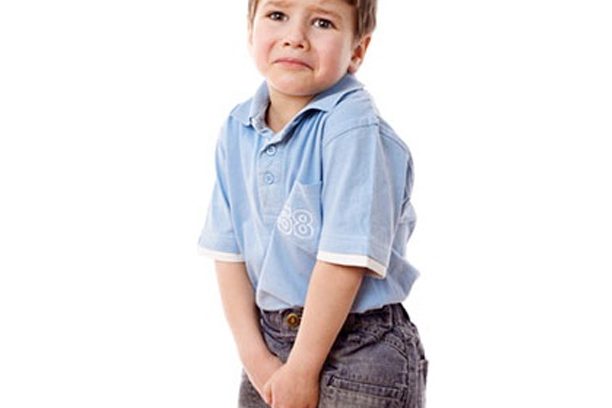
by admin | Aug 28, 2015 | Blog

My daughter’s middle school started up again earlier this week, and–as always–there was a flurry of forms for me to read and sign. This sheet asked for permission for the children to walk off campus with their teacher. OK, fine. That sheet made sure parents understand students will only receive 50% credit on tardy work. Yikes– harsh, but understandable.
So I was signing paper after paper after paper when my pen came to an immediate stop. Before me, in very plain language, was a policy that, at best, can be termed barbaric, potentially dangerous, and incredibly insensitive. In fact, I was so shocked I had to read it again. So I did …
“Students will be allowed to use the hall pass a maximum of 3 times per quarter. However, each use of the hall pass will cost the student 3 extra credit points. You will keep an individual hall pass log which must be presented each time a hall pass is issued. A lost log prevents the issuing of a hall pass and the awarding of any points. ”

Just in case there’s any confusion, by daughter’s school awards extra points for students who don’t use the toilet during class. In other words, if my child needs the bathroom when her body naturally tells her it is time, she will be penalized by receiving a lower grade.
I am dumbfounded.
Yes, surely teachers become sick and tired of students leaving class to dilly-dally in the hallways. It can be disruptive and annoying, and the kids might miss important lessons during their absences. However, what’s more distracting than sitting at a desk, squirming left and right, desperate to relieve oneself. While this policy may prevent hallway misadventures, it penalizes students who might actually need to use the bathroom.
Furthermore, the policy can have very serious side effects outside the classroom. Generally beginning in middle school, girls menstruate every month. There is no telling when the moment will strike. And there are often mishaps in management–particularly with youngsters learning how to handle the monthly flow. Teachers (especially female ones) should understand that delaying a trip to the bathroom is tantamount to branding girls with a scarlet letter.
Severe medical consequences can also arise from restrictive restroom policies. Children are more likely to have urinary tract infections, incontinence and chronic constipation. Children are struggling with constipation at near epidemic proportions, with some studies suggesting up to 30 percent of school-aged children affected. The cost for heath care and treatment for children with constipation is estimated at nearly $4 billion per year.
One common cause of constipation is withholding when the body signals it is time to go. A common side effect is encopresis, which is when a child involuntarily leaks stool. This can be humiliating, to say the least. Furthermore, typical treatment includes the use of laxatives that permit children to eliminate several times a day. Restricting bathroom access is going against the medical advice of any pediatric gastroenterologist.
While these policies are clearly damaging, they are sanctioned by school administration. Teachers and principals are under increased pressure to teach more, have students test better and outperform so classroom teaching time is precious. The problem is this policy is also against education law, as least it is in California where my children attend school.
The issue of students frequently leaving the classroom can easily be rectified without such insensitive policies. Some schools ask parents to provide doctor’s notes for students who require more flexibility. This is ludicrous and embarrassing for students who may already be bashful about their condition. Teachers should require students to sign in and out each time they use the restroom. If a pattern emerges the teacher can intervene by discussing the lost learning time with the student. Teachers can also refer students to the school nurse as needed.
Don’t make the vast majority of students suffer because some children use the hall pass as a chance to escape the classroom. Err on the side of children who are responsible and need the restroom, and deal with the abusers as they come. I wouldn’t put up with this policy at work and our kids shouldn’t have to in their schools.
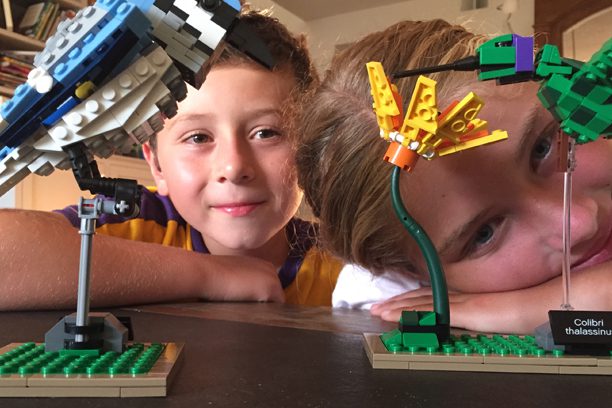
by admin | Jul 17, 2015 | Blog, Catherine's Picks, Toy Reviews
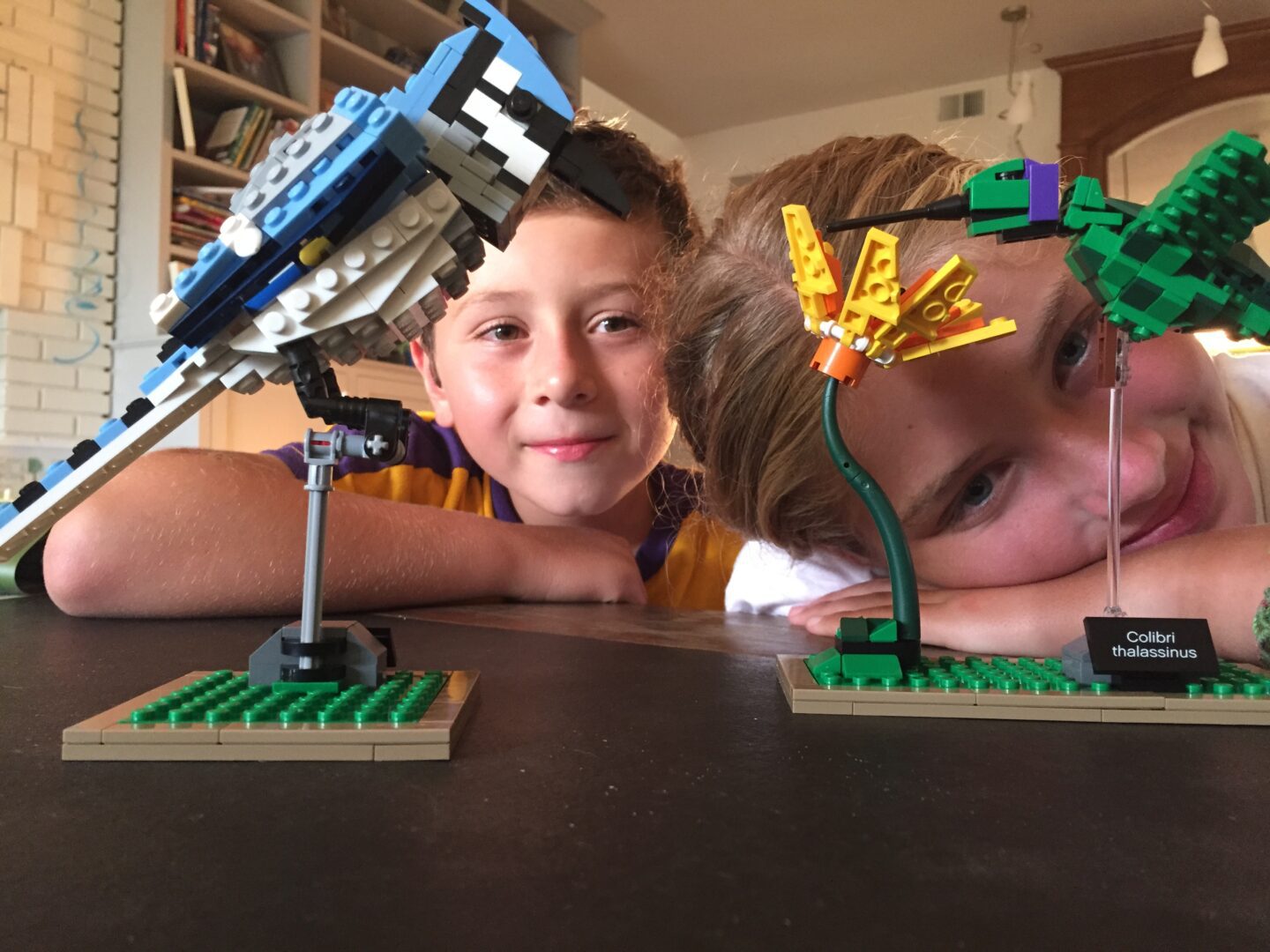
Lego Ideas: Birds
$44.99
Manufacturer recommended age: 12 – 15 Years (Done by my 8 yo and 11yo with little supervision)
The other day my son and I were wasting a little time in the Lego store. He loves to look at all the sets, and I kind of do too. Lego now has this really cool imaging television. You hold up any set that has more than 250 pieces and it brings it to life. It literally shows you the models all built and moving around on the box. It is incredible.
So while he took every set in the store up to the TV screen I checked out a few sets. One caught my eye. The Lego Bird set contains a hummingbird and flower, a gorgeous blue jay and a red-breasted robin. I love those birds. Actually I am kind of obsessed with them. So I did something I never do. I bought the set for no reason. Not as a surprise. Not as a birthday gift. Just for me to do with my son for fun.
Turns out the entire family loved the project. My daughter who doesn’t play with Legos often got inspired to build the hummingbird. Not only that she decided she needed more Legos in the future. Score!

Here’s my review:
Pros:
Fairly quick to build
Beautiful realistic looking birds, nicely displayed
The wings and heads move in awesome ways
Good for a girl or a boy or a kid or a grown up
Cons:
Fairly quick to build (Yup, this one is a pro and a con)
Delicate. This isn’t a Lego set your little ones can “play with” after it is built. It is more of a show piece
On a side note, this Lego set is part of Lego Ideas. Lego enthusiasts are allowed to make up anything they want, build it, take loads of pictures and then pitch it to Lego. People in the community vote on it and if it gets enough votes Lego reviews it. If Lego decides to build it the original designer gets 1% of the profits. That’s really really cool. And that is why this set is different. It was build by a guy who loves birds. Not just Lego. Check out some of the other ideas currently in the review process here.

by admin | Jul 11, 2015 | Blog
Parents are often baffled by the sleep needs of their children. This is partly because many parents are themselves sleep deprived. But also because sleep needs for children are constantly changing.
Over the years I have answered hundreds of questions happily. But it occurred to me that even when I tell parents the answers to their questions, they often ask again at a later time. So I decided to make a cheat sheet in the form of an info graphic to help parents quickly gauge if their child is getting enough sleep and what to expect at any age.
I hope this proves helpful for many of you. If it is, let me know.
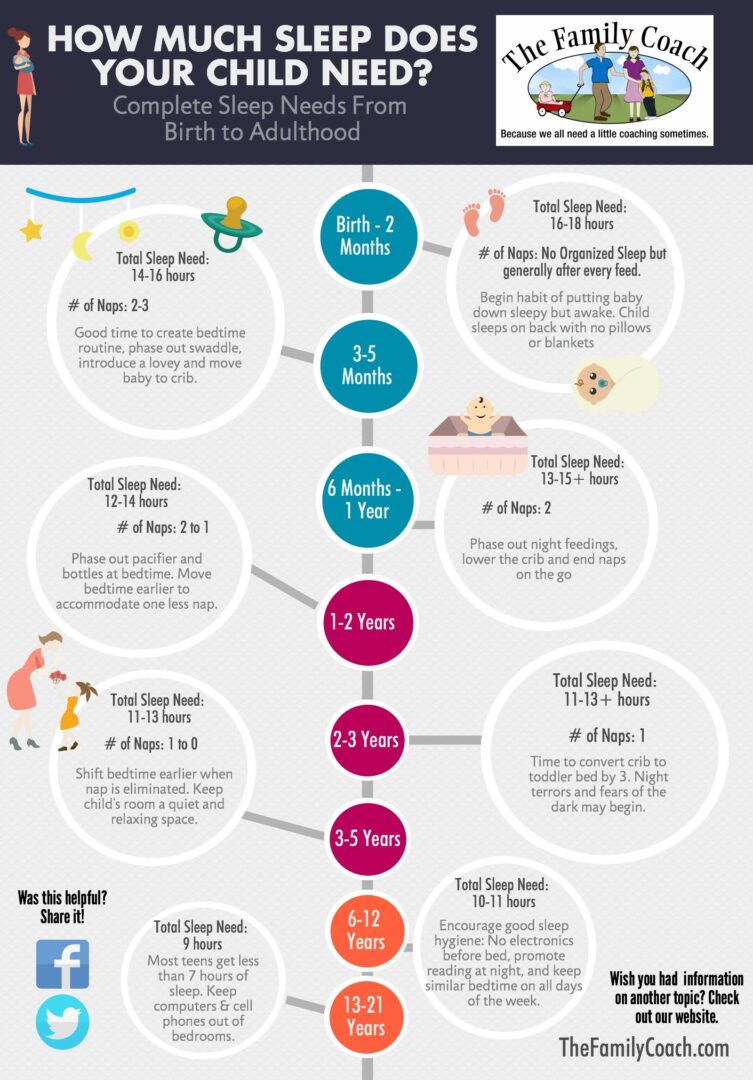
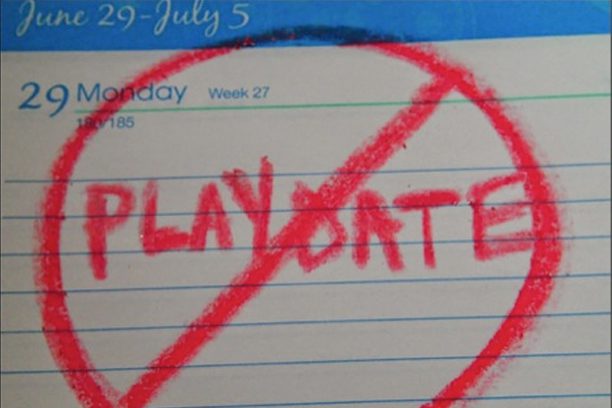
by admin | Jun 29, 2015 | Blog, Uncategorized
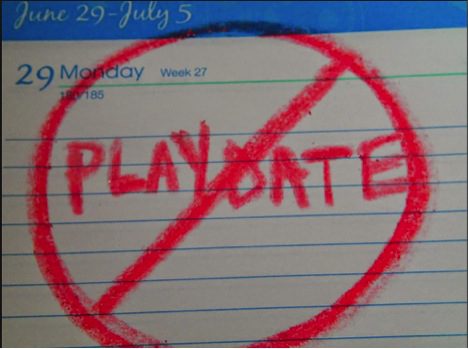
Play dates are a vital part of every parent’s handbook. Over the course of 12 years of motherhood I’ve hosted my fair share. The vast majority were wonderful. They were nice kids who played well with my kids. But then there are the others. This list is about those. Keep an eye out for these annoying kids and save your sanity.
Sadly I am sure my kids have been these kids from time to time. For those who have hosted my annoying kid, I am sorry. Really. If you find your kid is on the list take heart. You are in good company.
1. The Friend. This kid wants to hang out with you–and only you. He doesn’t grasp that he earned an invitation to your home for one main reason: So he can distract your kid while you get stuff done around the house. Nope–l’il Samantha doesn’t get it. You send the kids off to play on the trampoline–and Samantha wants to know if you’ll jump, too. You set the kids up with an art project on the dining room table, then retreat to the kitchen to start dinner. Two seconds later, Samantha is tugging on your apron, asking whether he can pour the macaroni.
2. The Snacker. I like when a child comes over, chomps on some popcorn, then goes about the business of playing with my kid. That’s not going to work for The Snacker. He wants a handful of grapes, a bowl of Goldfish, a bag of pretzels, and a cheese stick. Ten minutes later The Snacker is back for some peanut butter sandwich crackers. The Snacker is like the very hungry caterpillar, but considerably more annoying. True story: I once had a kid who ate me out of house and home, then–with her mother present for pick-up– opened up my cabinets and checked inside for a snack-to-go. The mom simply shrugged her shoulders and asked for sandwich bag. Neither was invited back.

3. The Tornado. This is the kid who, five seconds into the play date, has transformed my daughter’s Barbi Dream House into an “after” photo from Hurricane Sandy. Turn your back for a second and all the puzzles are pulled out. The Lincoln logs are dumped and crayons are strewn. Incidentally, this is the kid who doesn’t clean up, either. Nope, the Tornado chews on books and rips out pages; carries toys from the basement and deposits them in your upstairs bedroom. It is almost like the Tornado is mocking you because he knows you will go insane until every freaking piece is back where it belongs.
4. The Talker. You know the Peanuts teacher? The one who only says, “mwa mwa mwa mwa mwa”? That’s the sound you hear when the Talker comes over. The kid never shuts up. She talks about fairies and butterflies and flowers. She talks about books and plays and afterschool classes. She has to tell you about her camping trip with her grandma and oh-so-funny Uncle Jim. Then it’s on to world hunger. And Reese’s Peanut Butter Cups. And her daddy’s trip to Milwaukee. The Talker talks from the moment you pick her up at school until–three loooong hours later–her mom arrives at your house. As you bid farewell, the Talker’s mom offers that exasperated I-know-my kid-doesn’t-shut-up look and you realize you only had the Talker for a few afterschool hours. This parent has it far worse. The Talker is her kid.
5. The Indecisive Kid. This kid doesn’t know what she wants. Which smoothie would you like? Radio silence. Do you like Oreos? She’s not sure. Would you like to stay for dinner? “Umm.” Want to play in traffic?
6. The One Who Doesn’t Want to Play Anything.
Me: “Would you like to play a board game?”
Johnny: “No.”
Me: “How about painting rocks?”
Johnny: “No thanks.”
Me: “Oh I have a good idea. Why don’t you both make a huge fort in the living room with every pillow and sheet in the house? Go ahead a make a mess. I don’t mind.”
Johnny: “Nah, I did that yesterday.”
Me: “Lego? Ping Pong? Foosball? Baking? Basketball? Juggling? Dress up?”
Johnny: “Nothing sounds that fun.”
Me: “Then why the F#$& did you come over to play?”
(Admittedly, that last line was in my head)
7. The Crier. I have no problem with kids who show emotion and cry when they feel genuinely sad. This is not the Crier. The Crier cries all the time. He cries when he can’t go first. He cries when he gets softly knocked down by your excited dog (A wallet-sized cockapoo in my case). He even cries when the ice cream man is out of his favorite pop. As soon as you resolve one issue, another rears its head.
8. The Precocious Kid. Ah, a real gem. This is the one who teaches your child about tampons and sex. This kid knows about kissing–with tongue. From this little darling your child learns words you have painstakingly kept out of the family vocabulary and euphemisms that would make a pimp blush. In one short play date the Precocious Kid exposes your dear and innocent child to the great big adult world out there. Now, at age 9, you have to schedule an endless list of reparative conversations about the birds and bees, how babies get here, and why you can’t get pregnant from sharing a swing in the playground.
9. The Messy Toileter. This kid couldn’t find the center of the toilet bowl if you put up a landing strip with flashing lights and sunk neon Cheerios to the bottom. He dribbles pee around the toilet and leaves little brown smears around the rim when he wipes. He may or may not wash his hands but he definitely doesn’t use soap. He probably doesn’t remember to flush or put the seat down either. Might be a nice kid, but he needs some home training, STAT.

10. The Squatter. This is the kid who won’t leave. Ever. The parent has said 15 times to get her shoes on and she just runs around the house. She can’t find her socks. She left his backpack in the car. She thinks her super special bouncy ball is in your son’s room. She has to go and check but that would mean taking off her shoes again. On and on and on and on.
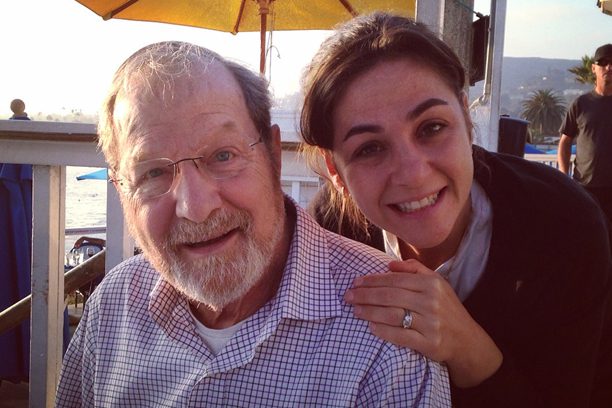
by admin | Jun 17, 2015 | Blog, Uncategorized
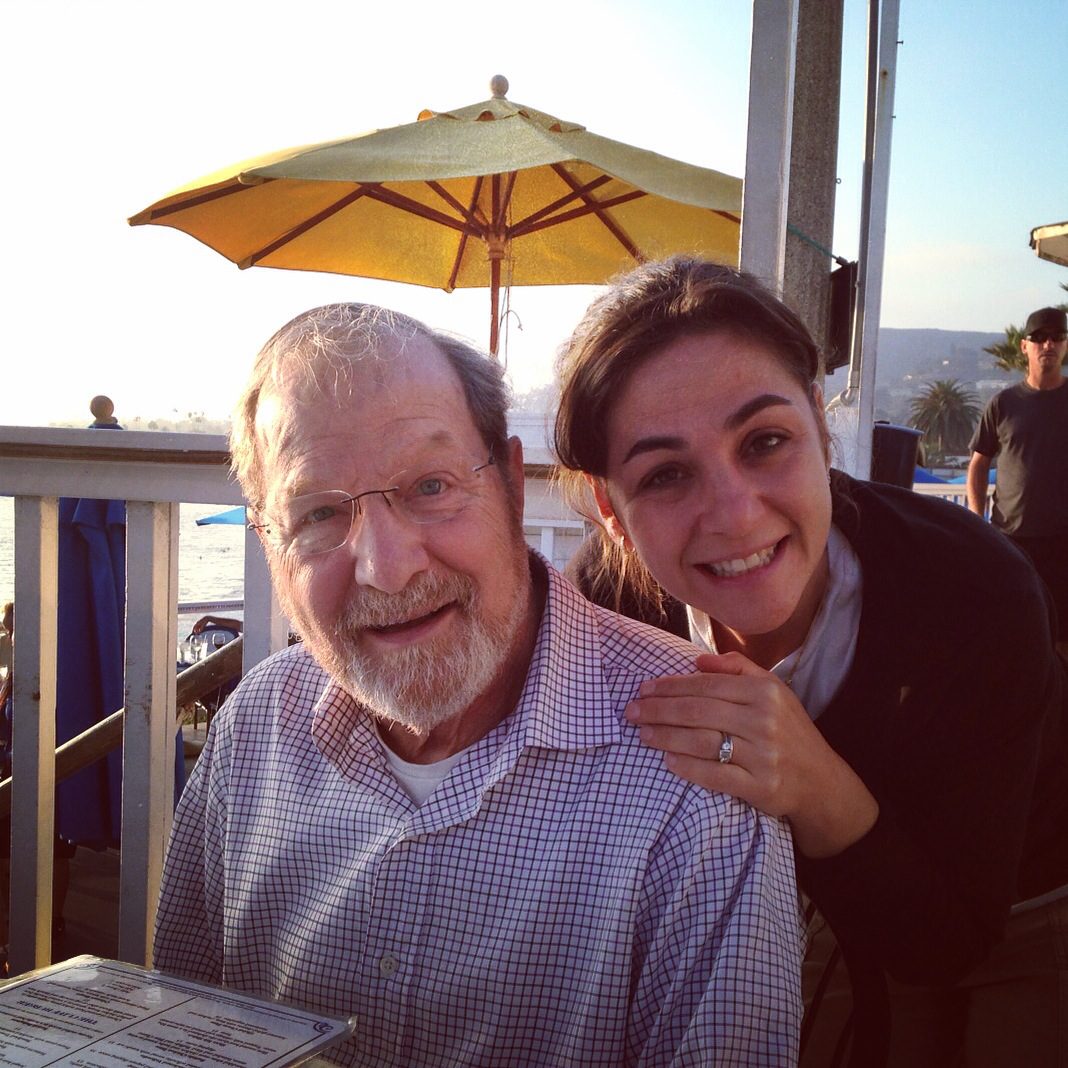
Every year I perform the same ritual. I rack my brain and search the Internet to figure out what to will get my dad for Father’s Day? What do you get for someone who doesn’t need anything or want anything? Growing up I learned that the best gifts are the ones that are homemade and from the heart. But at my age a macaroni covered ashtray spray painted gold isn’t going to cut it. I’ve been making cards and bowls and cakes for my parents for years. This year I decided not to do any of that.
I have a great dad. He isn’t gushy with words of love and therefore I also am not gushy with him.
But I don’t want to make the mistake of missing the opportunity to tell him that I recognize all he gave me.
So, in honor of father’s day, here is my list of 6 lessons a great dad taught a lucky daughter.
1. When people say, “It can’t be done”–ignore them. My dad can fix anything. He studied engineering in college but became a businessman instead. That didn’t stop him from being able to use his skills daily. Once after he moved into a new house the cable man told my dad that he wouldn’t be able to get cable in the downstairs bedroom. “Yeah, right,” Dad replied. He spent the better part of a Sunday crawling under the house with who knows what. He laid the cable, connected it, and–BAM!–we had cable in the downstairs bedroom. The takeaway for me was much more far-reaching than not to take no for an answer from the cable guy. I learned that if you put your mind to something you can make it happen.
2. Girls can be handymen. When my husband and I purchased our first home my dad bought me a drill. He didn’t give it to my spouse. He gave it to me. The drill came with a package of drill bits. My dad said after I used each bit he would get me a bigger pack. I put my mind to using that drill for everything. I hung mirrors, drilled holes for towel racks and I even put a hole in our maple tree to make maple syrup. That drill made me feel powerful and capable. Maybe since my dad didn’t have any sons he gave his knowledge to his girls without thinking about it. Or maybe he just didn’t buy into the idea that girls can’t fix stuff. I chose to believe it’s the latter. When my daughter was in preschool she did a project about her parents’ jobs. She said “My dad writes books and is a sports writer. My mom fixes things.” Mission accomplished.

3. You don’t have to raise your voice to get your point across. My dad has never–not once– raised his voice at me. He didn’t yell when I can-opened the side of his car. He didn’t yell when I stole his company’s phone card and used it to call my friends around the country. He didn’t even scream the time I got kicked out of sleep-away camp, and he had to drive six hours to Maine to get me. Dad just kept his cool and said the three worst words (I’m very disappointed). Then he would hold us accountable for our actions. That levelheadedness was a lifeline. At the end of the day we knew that whatever we did, he would be there for us, and we would work it out.
4. If you have something, share it. There is nothing my dad has that he wouldn’t share with a friend or family member. He had a great beach house and everyone was always invited. You may have had to sleep on the couch or floor but you were welcome. He would lend you any shirt even though he knew he might never get it back. If you needed a car for the weekend, he would go without one so you could go off with your friends. He showed us that giving is better than receiving.
5. If you cook it, they will come. Parenting experts carp about the importance of family dinners, and for good reason. My dad rarely missed a family meal. In fact, meal times became the center of our universe. When my parents divorced Dad took on cooking as an all-day activity. We read recipes. We shopped at specialty stores for ingredients. Next we cooked until nighttime and ate our masterpiece for dinner. When parents take the time to prepare the family meal with thought and love, the kids–even as teenagers–will come running. I learned that from my dad.
6. Actions speak louder than words. My dad is a man of few words and as he ages they have become even fewer. For years I waited for the moment he would say he loved me. Now I think how silly to wait for words instead of seeing the actions that were so much more tangible. My dad is the kind of guy to pick you up from the airport at 2am. He is the dad who spent hours working with me on my science fair project. And the dad who made sure we had everything even when we didn’t appreciate it. I know my dad loves me because he showed me in a 1001 ways.
This father’s day, I passed on the tie and the cologne and a shaving kit. I hope my dad likes this list just as much.
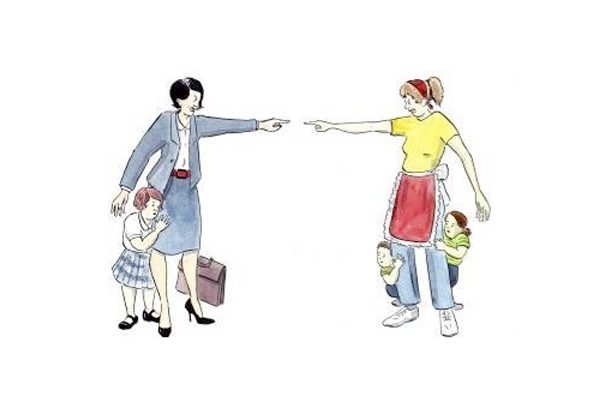
by admin | May 26, 2015 | Uncategorized
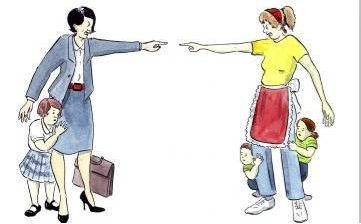
The mommy wars have created a harsh dichotomy between stay-at-home moms and the working mother. Way back in the 1960s, Betty Friedan trumpeted the idea that women can choose to work outside the home–And immediately the catfight between the two groups began.
For a great many women, however, neither classification applied. With an increasing number of work-from-home opportunities (can you say direct sales?) and flexible schedules, they are members of both castes. These women deserve their own moniker and from now on should be referred to as stay-at-home-working mothers (SAHWM). Here’s how you know if you are a SAHWM (Pronounced saw-hum).
1. You have two jobs. There’s no rest for the SAHWM. First there’s the job for which you receive monetary compensation. This job generally has deadlines and work product requirements. And there is often a pesky boss who checks on your work from time to time. The other job is the one of raising the kids. This job requires cooking, cleaning, chauffeuring, scheduling, and bathing (the kids, not necessarily yourself). SAHWMs are constantly balancing finishing a quarterly report with planning a Spiderman birthday extravaganza. They supervise play dates while prepping for dinner all while on a conference call. They have all the responsibility for pick up, doctors’ appointments, and the PTA. But SAHWMs also plan work retreats and have meetings. For SAHWMs working does not negate the need to food shop, schedule afterschool activities, do laundry, clean the house, and make the dreaded school lunches. If you work these two jobs you are a SAHWM.
2. You are confused by the mommy wars. The mommy war implies an us-vs.-them mentality. You don’t know which camp you are in. The stereotype of a stay-at-home mom is a mom who does the housework and minds the kids–But also goes to the gym and meets her friends at Starbucks for skim iced chai tea lattes. Stay-at-homes don’t contribute to the finances of the household so some feel badly spending money on personal items. This isn’t you. You don’t feel badly about taking from family budget because you are the family budget. And you almost never get to the gym (You tell yourself you’ll get there when the kids go off to college). So you must be a working mommy. Well, the stereotype of the working mother is that she isn’t there to raise her children. She misses the class trips to Legoland. And she cares more about her career advancement than her children’s milestones. Ouch. Also, not you. That’s the thing about the SAHWM. You do Legoland, and pick up afterschool. So you must be a SAHWM.
3. You feel stressed all the time. SAHWMs burn the candle at both ends. They eat the ice cream cone from the top and bottom. They walk a tight rope across Niagara Falls. SAHWMs try to give their all to their kids and their work. Yet too often both sides feel compromised. If it seems as if you are never caught up, always have more work to do, and look forward to being alone in the supermarket, well, you’re probably a SAHWM.
4. You are really two people. SAHWMs gauge their audience all the time. If they are at a birthday party they become the mom who can talk about teachers to avoid (You know the one) or the latest bully on the block (Stay away from little Johnny). If they are at work, they learn to minimize mommy talk to avoid losing cred with the higher ups and their peers. A SAHWM wouldn’t think of mentioning the kids vacation schedule at work, and she wouldn’t dare talk about how hard work is at the birthday party. If you are constantly shuffling back and forth between these two women you are a SAHWM.
5. You take efficiency to a new level. SAHWMs don’t have time for a wasted minute. They need to be all things to all people. When at school they want to get in and get out. They nearly crawl out of their skin when the PTA devotes an hour and twenty gosh darn minutes to debate which type of swing would be best for the new playground (Your answer, who cares?). When SAHWMs are working they get eight hours of work done in five. SAHWMs don’t like committees or group projects. Scratch that–they loathe any project of any kind. If a memo comes home from school that a diorama of the water cycle will be due next week the SAHWM wants to lead the coup to overthrow the administration. If you make lists obsessively and follow schedules like your life depended on it, you are a SAHWM.

by admin | May 8, 2015 | Blog

Dear Mrs. Dunbar:
I recently read an article your husband wrote titled, “Why I Won’t Let My Wife Quit Her Job.” I immediately wanted to write some choice words to your husband. But I instead decided that you were the person to whom I should direct my response.
First, I’m sorry.
Really. I’m sorry you have a husband who feels the need to make you work out of the house even when you don’t want or need to. You are not an inmate. You are a woman. Nowadays women have choices. Many women love to work and many women love to stay home. And there are many women who wish they had the choice but don’t due to financial obligations. But I am saddened that you don’t have a choice because of a controlling husband.
If you were desperate to get out of the house and wanted to work for your own benefit, I would support you 100 percent. Working outside the home can be a wonderful choice–one that I have made. But to work because your husband can’t stand to see you become “stagnant” is not OK. Women who stay at home don’t necessarily become dull and sluggish. This would definitely be surprising to your husband, but many women find raising their children can be quite stimulating and rewarding. And hard.
I am sorry Mr. Dunbar feels staying home to raise children is fine for some women but he wants “better” for you. In my opinion, better for you would be to have a husband who feels your voice is equal to his when it comes to making decisions about your life. If you don’t need the money and you don’t want to work, why would his opinion matter more than yours? As he is so quick to point out, he makes more than enough for the family (Congrats, Mr. Dunbar. We are very proud of you.)
I am sorry your husband diminishes the happiness he sees when you are with your kids. Even though he admits your happiness at work is second to the joy your feel with your kids, he still wants to take you away from your greatest joy. I am sorry he has “expectations” for you that are about him and his fears instead of about your dreams and your goals.
I am sorry your husband not only needs to control you and what you do, but also needs to tell the world. His column wasn’t about you–it was all about him.
I am sorry you didn’t find a good lawyer to sue the employer that overlooked you for promotions because of a potential maternity leave. That’s illegal and fighting back might have made you feel empowered. Oh, wait. Your husband wouldn’t want that.
Please tell your husband that your daughter can still be president, whether you stay home or not. Rather, here’s the best way to make sure she never chases her dreams: Teach her submissiveness. Teach her that following a man’s wishes trumps following her own. Teach her to yield to the voices of others.
Actually, you don’t need to teach her any of that. Your husband’s doing fine on his own.
If my friends thought I was a jerk, I might take some time to evaluate why. Instead of doing that, your husband is digging in his heals. Your friends have tried to talk to him. You expressed your reservations and wishes to no avail. I recommend a good therapist for you both to help put you on equal footing with your husband. Whatever you do, don’t feel trapped. Don’t be controlled. And don’t lose your own voice. Get help.
























